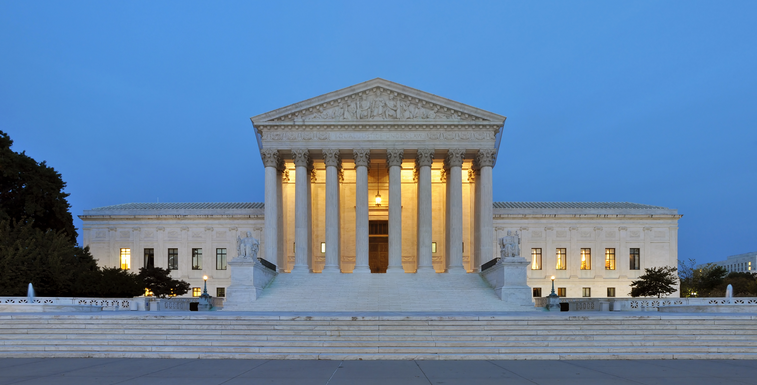Supreme Court could overturn Chevron deference, massively scaling back size of U.S. federal government
01/24/2024 / By Ethan Huff

The era of massive government in Washington, D.C., could be coming to an end as the Supreme Court assesses the so-called “Chevron deference” and determines whether or not it is constitutional.
The Chevron deference, which the Supreme Court set forth back in 1984, allows for federal agencies to basically make up their own policies as they go along, just so long as Congress has not specifically ruled against a given policy. In essence, the Chevron deference has created a fourth branch of government, critics argue, which violates the Constitution.
“In the landmark ruling in Chevron v. Natural Resources Defense Council (NRDC), the court held that while courts ‘must give effect to the unambiguously expressed intent of Congress,’ where courts find ‘Congress has not directly addressed the precise question at issue’ and ‘the statute is silent or ambiguous with respect to the specific issue, the question for the court is whether the agency’s answer is based on a permissible construction of the statute.'”
On January 17, SCOTUS heard a case challenging the Chevron deference. A lawyer for a fishing company argues that impedes the rule of law, and many conservative and Republican policymakers seem to agree. Conservative Justices Clarence Thomas, Samuel Alito and Neil Gorsuch have also expressed skepticism about the Chevron deference.
(Related: Perhaps it is time to massively scale back the Federal Aviation Administration [FAA], which is now intentionally hiring people with “severe intellectual and psychiatric disabilities” to fly planes and direct air traffic as part of a new “diversity, equity and inclusion” [DEI] program.)
When is the federal government too large?
Supporters of the Chevron deference say it is necessary in an increasingly complicated world because it empowers an activist federal government to serve the public interest without having to constantly seek congressional authorization for every single thing that needs to get done.
SCOTUS is actually hearing two separate cases addressing the Chevron deference: Relentless Inc. v. Department of Commerce and Loper Bright Enterprises v. Raimondo.
The issue was first brought to light in the modern era back in 2020 when the U.S. Department of Commerce’s National Oceanic and Atmospheric Administration (NOAA) and its National Marine Fisheries Service implemented a final rule to force fishing companies to pay for human monitors aboard their vessels. The fishing companies in question argue that the burden of hiring these monitors is simply too much, and that it would significantly reduce their profit margins.
In the Relentless Inc. case, attorney Roman Martinez argued to the Supreme Court justices that the Chevron deference must be overruled.
“For too long, Chevron has distorted the judicial process and undermined statutory interpretation,” he said.
“Chevron violates the Constitution. Article III empowers judges to say what the law is … [and] to interpret federal statutes using their best and independent judgment. Chevron undermines that duty. It reallocates interpretive authority from courts to agencies, and it forces courts to adopt inferior agency constructions that are issued for political or policy reasons.”
Martinez would go on to state that Chevron also blocks judges from serving as faithful agents of Congress by mandating judicial bias and encouraging agency overreach, as well as by removing certain key checks on the executive branch. Worst of all, Chevron threatens individual liberty, Martinez added, as well as violates the Administrative Procedures Act (APA).
The APA, Martinez continued, “contemplates that courts, not agencies, will authoritatively resolve ambiguities in statutes.”
“This court’s only justification for Chevron is the implied delegation theory, but that theory is a fiction. There’s no reason to think that Congress intends every ambiguity and every agency statute to give agencies an ongoing power to interpret and reinterpret federal law in ways that override its best meaning.”
More related news can be found at BigGovernment.news.
Sources for this article include:
Submit a correction >>
Tagged Under:
big government, Chevron deference, federal government, freedom, government agencies, Liberty, progress, Resist, revolt, scotus, Supreme Court, Tyranny, uprising, US Constitution
This article may contain statements that reflect the opinion of the author
RECENT NEWS & ARTICLES
COPYRIGHT © 2017 OBEY NEWS

















